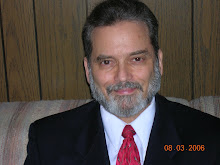How often do we say, "Someday I'll get around
to..." followed by one of our cherished dreams:
write a novel, find a mate, learn a language,
find a new career, succeed in business, spend
more time with my family, and the list goes on.
While coaching doesn't substitute for counseling
when it comes to serious emotional blocks and
problems, it has helped many people achieve
their goals.
How does it work? By crafting a coaching plan
with a clear set of step by step goals, meeting
and dedicating time to this plan on a regular basis,
creating an accountability that matches the client,
challenging the coaching client and supporting
them in moving outside their comfort zone, very
wonderful things can happen. People may get
past obstacles, procrastination, and uncertainty,
and the fear of acting on what they really want.
The relationship with the coach is another key.
A professional or executive coach is like a partner
on your team who helps you craft your plan, but
you retain all the profits or benefits. The process
is akin to a personal seminar on the most important
things in your life.
******************************************
Geoff Michaelson, Ph.D. has been a professional
and executive coach since 1995. He was a member
of the Mentor/Coach LLC Trainers Team, coaching
numerous coaches on how to help their clients. He
has coached CEO's and COO's in the financial and
manufacturing sectors, published authors, music
company executives, literary agents, actors, among
many others.
******************************************
Saturday, January 31, 2009
Tuesday, January 13, 2009
Pain Management
Here are 5 tips to managing pain from a psychological
perspective.
1) Since muscle tension around a pain area can increase
the perception of pain, finding a way to relax despite
the felt pain can help. Everyone is different regarding
what can help in a painful situation. Some strategies:
a) Diaphragmatic breathing( can be taught in minutes}
b) Hypnosis (can be taught for muscle relaxation in a
single session).
c) Mindfulness training (simple techniques taught in minutes)
d) Visualization (designed with individual preferences for
analgesic imagery) . There are many more simple
techniques for relaxation.
2) We have good and bad pain days. Take a break every day
from worry and thinking about symptoms. Call your doctor
if need be and let him/her worry or think about it. Mentally
practice this rest from fear or worry for as long as you want
or can. Its your moment or time to reclaim from pain.
3) Make a practice of focusing your mind on something that
is pleasurable whether or not your pain is significant. Realize
that a pleasure can co-exist with pain. Practice focusing
on the pleasureable sensation whether it involves touch, taste,
sound, sight or any other sense.
4) We sometimes think we know how a day will go depending
on how it starts. Practice letting go of knowing. Your muscles
may let go as well.
5) Watch your self talk. Telling yourself that your pain is horrible
may be true at times and sometimes continuously, but drop the
emotional adjective. "Its a 9 on the scale" is enough. It can
add to a lower sense of self. Our pain can feel bad, but we are
not our pain. It is something we have and we need not feel
bad about ourselves by remembering we are so much more
than the feeling od pain.
perspective.
1) Since muscle tension around a pain area can increase
the perception of pain, finding a way to relax despite
the felt pain can help. Everyone is different regarding
what can help in a painful situation. Some strategies:
a) Diaphragmatic breathing( can be taught in minutes}
b) Hypnosis (can be taught for muscle relaxation in a
single session).
c) Mindfulness training (simple techniques taught in minutes)
d) Visualization (designed with individual preferences for
analgesic imagery) . There are many more simple
techniques for relaxation.
2) We have good and bad pain days. Take a break every day
from worry and thinking about symptoms. Call your doctor
if need be and let him/her worry or think about it. Mentally
practice this rest from fear or worry for as long as you want
or can. Its your moment or time to reclaim from pain.
3) Make a practice of focusing your mind on something that
is pleasurable whether or not your pain is significant. Realize
that a pleasure can co-exist with pain. Practice focusing
on the pleasureable sensation whether it involves touch, taste,
sound, sight or any other sense.
4) We sometimes think we know how a day will go depending
on how it starts. Practice letting go of knowing. Your muscles
may let go as well.
5) Watch your self talk. Telling yourself that your pain is horrible
may be true at times and sometimes continuously, but drop the
emotional adjective. "Its a 9 on the scale" is enough. It can
add to a lower sense of self. Our pain can feel bad, but we are
not our pain. It is something we have and we need not feel
bad about ourselves by remembering we are so much more
than the feeling od pain.
Subscribe to:
Posts (Atom)
